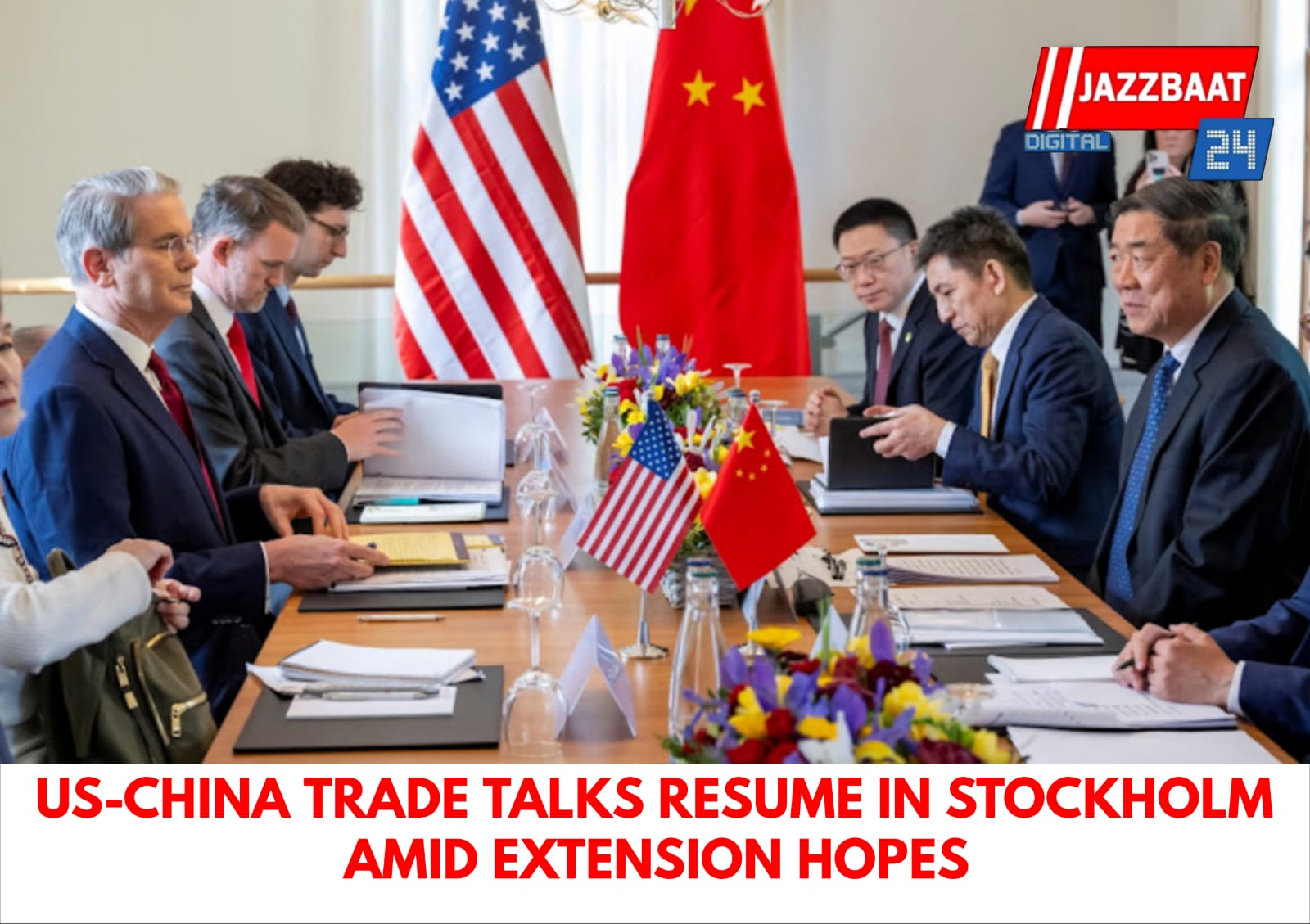
The world's two largest economies seek to extend tariff truce as August deadline approaches
The United States and China are set to begin crucial trade negotiations in Stockholm on Monday, with growing expectations that both nations will agree to extend their current tariff truce by another 90 days.
The high-stakes talks, led by US Treasury Secretary Scott Bessent and Chinese Vice Premier He Lifeng, come just hours after President Donald Trump announced a framework trade agreement with the European Union, signaling potential momentum in resolving global trade tensions.
The current 90-day tariff pause between Washington and Beijing is scheduled to expire on August 12. Since Trump's return to the White House in January, both countries had imposed import levies exceeding 100% on each other's goods before agreeing to the temporary truce following earlier negotiations in Geneva and London.
According to sources familiar with the discussions, the two sides are expected to commit to refraining from implementing new tariffs or taking additional measures that could escalate their ongoing trade dispute during the proposed extension period.
"The talks are in a very good place," Bessent said last week, suggesting optimism about securing a second truce. The Stockholm discussions will mark the third round of formal negotiations between the two economic superpowers as they work to resolve disagreements that have shaped global trade dynamics.
The upcoming talks are expected to address a broader range of issues beyond traditional trade concerns. These include Beijing's oil purchases from Russia and Iran, as well as fentanyl-related tariffs – topics that have become increasingly important in US-China relations.
Technology exports, particularly semiconductors used for artificial intelligence, remain at the center of the trade dispute. US security officials have expressed concerns that advanced American chips could potentially be used by China's military and bolster Chinese companies in the global innovation race.
In a significant development, reports suggest the US has frozen restrictions on technology exports to China to avoid disrupting the trade talks and potentially facilitate a meeting between Trump and Chinese President Xi Jinping later this year.
The Stockholm negotiations come as Trump has successfully concluded trade agreements with several other partners. Japan agreed to a substantial $550 billion investment in the US with a 15% tariff rate on its goods. The UK secured the lowest tariff rate at 10%, while deals have also been reached with Indonesia and Vietnam.
Unlike these agreements, no major breakthrough is anticipated from this week's US-China talks. However, the expected extension of their tariff truce offers hope that global trade will avoid further disruption from new tariffs.
Asian markets have been closely monitoring developments, with investors showing cautious optimism about the potential for reduced trade tensions. The extension would provide both economies with additional time to work toward a more comprehensive resolution of their trade differences.
As the world's two largest economies prepare for another round of negotiations, the outcome could significantly impact global supply chains, international trade patterns, and economic stability worldwide. The talks represent a critical juncture in the ongoing effort to establish a more predictable framework for US-China economic relations.